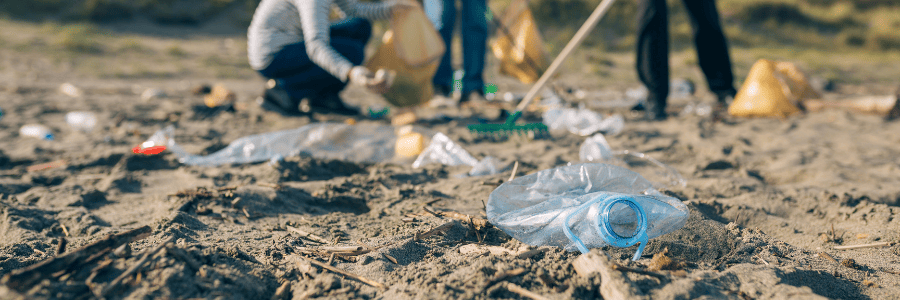Trade-offs in replacing single-use plastics

A complex landscape of trade-offs have emerged as sectors worldwide seek to replace single-use plastic products (SUPPs) with sustainable alternatives. The shift toward alternatives brings questions of environmental benefits, economic costs, and social implications. Life cycle assessments (LCAs) show that while SUPPs have notable environmental consequences, their alternatives are not without their own impacts.
Understanding life cycle impacts
SUPPs are often replaced with alternatives like paper, glass, and biodegradable materials. While these substitutions may initially appear environmentally friendlier, LCAs indicate that they can shift impacts to other areas. For example, paper bags have a higher carbon footprint than plastic bags due to intensive resource consumption during production. If they end up in landfills, paper products can release methane, a potent greenhouse gas.
Sign in to access actionable insights
A complex landscape of trade-offs have emerged as sectors worldwide seek to replace single-use plastic products (SUPPs) with sustainable alternatives. The shift toward alternatives brings questions of environmental benefits, economic costs, and social implications. Life cycle assessments (LCAs) show that while SUPPs have notable environmental consequences, their alternatives are not without their own impacts.
Understanding life cycle impacts
SUPPs are often replaced with alternatives like paper, glass, and biodegradable materials. While these substitutions may initially appear environmentally friendlier, LCAs indicate that they can shift impacts to other areas. For example, paper bags have a higher carbon footprint than plastic bags due to intensive resource consumption during production. If they end up in landfills, paper products can release methane, a potent greenhouse gas.
The end-of-life management of these products significantly affects their environmental impact. For instance, biodegradable alternatives only degrade under specific conditions, and compostable products can become contaminants in conventional recycling streams. Proper disposal is crucial to minimise the environmental impact of SUPP alternatives, and local waste management infrastructure plays a critical role. In regions with limited recycling or composting facilities, alternatives may end up in landfills, undermining their environmental benefits.
Economic considerations
Switching from SUPPs to more sustainable alternatives often involve increased upfront costs for businesses. Materials like bioplastics and paper can be more expensive than traditional plastics. This shift may require industries to reallocate budget resources, potentially impacting other aspects of operations. On the other hand, eliminating SUPPs entirely can yield long-term savings, as reusable products reduce the need for constant repurchasing.
Furthermore, the impact of these changes varies by industry. In aviation, for example, replacing plastic items with heavier alternatives increases fuel consumption, thereby raising the operational costs and carbon emissions. Tourism and hospitality businesses may find the expense of alternatives prohibitive, especially in developing regions where SUPPs are cheap and accessible.
To navigate these challenges, some companies are integrating the principles of circular economy, encouraging the use of locally-sourced materials to lower transportation costs and environmental impacts. In some cases, customers are willing to pay a premium for eco-friendly products, offering a potential revenue stream for businesses that embrace sustainability. However, this market varies across demographics and regions, making it necessary for businesses to understand the expectations of their customers and the willingness to support eco-friendly initiatives.
Social impacts
SUPPs replacement strategies must also consider social impacts, which vary across communities. For instance, reusable products require more labour for cleaning and maintenance, which may alter job roles or create new positions. Yet, they can also lead to health and safety concerns if not sanitised properly, especially in industries where hygiene is critical, such as food service and healthcare.
Moreover, the choice of alternative materials influences social equity. In areas with poor waste management infrastructure, products like biodegradable plastics may not decompose as intended, leading to increased pollution. This issue is particularly pronounced in low-income regions where informal recycling sectors play a major role. These regions often rely on SUPPs, like single-serve sachets, due to affordability and accessibility, despite the long-term environmental costs.
Additionally, some communities depend economically on the production of SUPPs. As policies change, these communities may face economic hardship unless alternate livelihoods are provided. Social life cycle assessments (SLCAs) can offer insights into the broader social ramifications of SUPP alternatives, but businesses may not always have access to these analyses. Balancing these factors requires businesses to engage with local communities and consider the broader social implications.
Informed decision-making required
Navigating the trade-offs of SUPP replacement requires a holistic approach. Decision-makers can utilise LCAs and SLCAs to evaluate the environmental and social impacts of products across their life cycles. These tools help avoid unintended consequences, such as shifting environmental burdens to other areas or adversely impacting vulnerable communities. Companies are increasingly using decision frameworks that incorporate end-of-life considerations, emphasising recycling, reuse, and reduction before introducing new materials.
Governments and industries alike are advocating for clearer labeling and standards for SUPP alternatives. This approach helps prevent “greenwashing” and ensures that consumers and businesses alike are informed about a product's actual environmental footprint. It also encourages the development of local waste management infrastructure that can handle a broader range of materials, making it easier to manage SUPP alternatives in environmentally and socially responsible ways.
The transition from SUPPs to more sustainable alternatives is not a straightforward substitution but a complex decision-making process. It requires careful consideration of environmental impacts, cost implications, and social factors. As businesses, governments, and consumers alike strive for a more sustainable future, they must recognise that each choice comes with its own set of trade-offs. In doing so, they contribute to a more sustainable global economy that benefits both people and the planet.


















